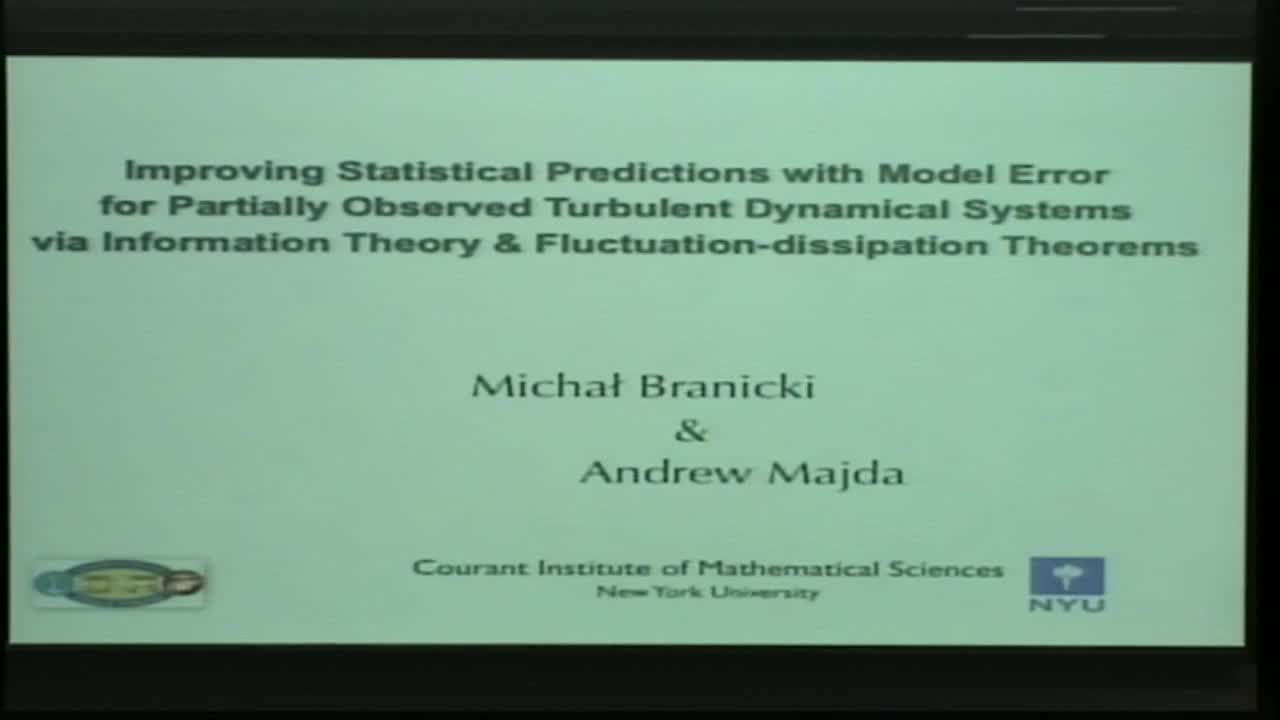Improving Statistical Predictions With Model Error for Partially Observed Turbulent Dynamical Systems via Information Theory & Fluctuation-dissipation Theorems
Presenter
March 13, 2013
Keywords:
- Information, fuzziness
MSC:
- 62B86
Abstract
Incomplete knowledge of the true dynamics and its partial observations pose a notoriously difficult problem in many scientific applications which require predictions of high-dimensional dynamical systems with physical instabilities and energy fluxes across a wide range of scales. The issue of 'model error' is particularly important in prediction of turbulent geophysical systems with with a multitude
of active spatio-temporal scales and rough energy spectra near the resolution cut-off of the numerical models. I will give an overview of a newly emerging stochastic-statistical framework which allows for information-theoretic quantification of uncertainty and reduction of model error effects in imperfect statistical predictions of complex, nonlinear and non-Gaussian multi-scale dynamics. Two main themes of the talk are (i) existence and mitigation of 'information' barriers to imperfect model improvement and (ii) the utility of fluctuation-dissipation type arguments in forced, dissipative turbulent systems for assessing the skill of imperfect predictions of 'climate change' scenarios based on the information obtained from the unperturbed climate/equilibrium.
